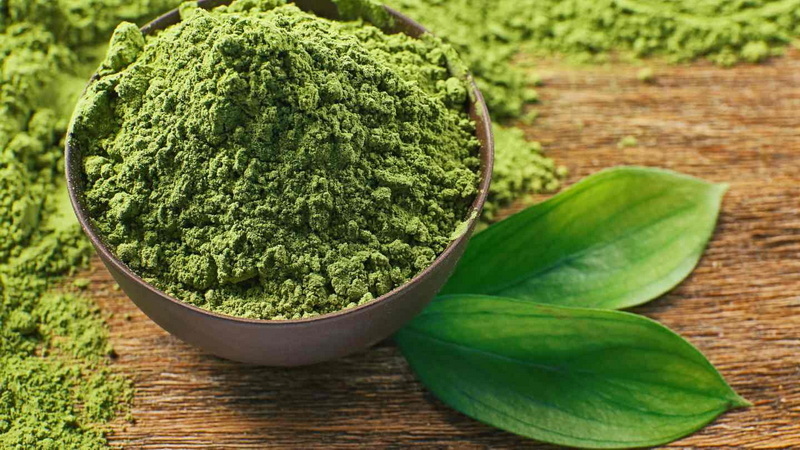Content Menu
● The Origins of Green Tea Extract
● Composition of Green Tea Extract
● The Purpose of Green Tea Extract
>> 1. Antioxidant Properties
>> 2. Weight Management
>> 3. Heart Health
>> 4. Brain Function
>> 5. Cancer Prevention
>> 6. Skin Health
>> 7. Exercise Performance and Recovery
● Forms and Usage of Green Tea Extract
● Potential Side Effects and Precautions
● Green Tea Extract vs. Drinking Green Tea
● Quality and Sourcing
● Conclusion
● Frequently Asked Questions
>> 1. How long does it take to see results from green tea extract?
>> 2. Can green tea extract interfere with medications?
>> 3. Is it safe to take green tea extract during pregnancy or while breastfeeding?
>> 4. Can green tea extract help with acne?
>> 5. How does green tea extract compare to other antioxidant supplements?
● Citations:
Green tea extract has gained significant popularity in recent years due to its potential health benefits and versatile applications. This article will explore the purpose of green tea extract, its composition, and the various ways it can be used to improve overall health and well-being.

The Origins of Green Tea Extract
Green tea, derived from the Camellia sinensis plant, has been consumed for thousands of years in many Asian cultures. The extract is a concentrated form of green tea, containing the same beneficial compounds found in the beverage but in higher concentrations.
Composition of Green Tea Extract
The primary components that make green tea extract beneficial are:
1. Catechins: These are powerful antioxidants, with epigallocatechin gallate (EGCG) being the most abundant and well-studied.
2. Caffeine: Although present in lower amounts than in coffee, caffeine contributes to some of the extract's effects.
3. L-theanine: An amino acid that promotes relaxation without causing drowsiness.
The Purpose of Green Tea Extract
1. Antioxidant Properties
One of the main purposes of green tea extract is to provide a concentrated source of antioxidants. These compounds help protect cells from damage caused by free radicals, which are linked to various chronic diseases and aging[1][3].
2. Weight Management
Green tea extract has been studied for its potential to aid in weight loss and fat burning. The combination of caffeine and catechins may increase metabolism and fat oxidation[5].
3. Heart Health
Research suggests that green tea extract may help improve cardiovascular health by:
- Reducing blood pressure
- Improving blood fat levels
- Decreasing inflammation in blood vessels[1][2]
4. Brain Function
The L-theanine and caffeine in green tea extract may work synergistically to improve cognitive function, including:
- Enhancing memory
- Increasing focus and attention
- Potentially reducing the risk of neurodegenerative diseases like Alzheimer's and Parkinson's[3][6]
5. Cancer Prevention
While more research is needed, some studies suggest that the high concentration of antioxidants in green tea extract may help prevent certain types of cancer or slow the growth of cancer cells[2][7].
6. Skin Health
Green tea extract has been shown to have potential benefits for skin health when applied topically or consumed orally. It may help:
- Reduce inflammation
- Protect against UV damage
- Improve skin elasticity[1]
7. Exercise Performance and Recovery
Some studies indicate that green tea extract may enhance exercise performance and recovery by:
- Increasing fat oxidation during exercise
- Reducing muscle damage and inflammation
- Improving endurance[1][5]
Forms and Usage of Green Tea Extract
Green tea extract is available in various forms, including:
1. Capsules or tablets
2. Liquid extracts
3. Powders
4. Topical creams or ointments
Green tea extract supplements
The recommended dosage typically ranges from 250-500 mg per day, but it's essential to consult with a healthcare professional before starting any new supplement regimen[1][4].
Potential Side Effects and Precautions
While generally considered safe, green tea extract may cause side effects in some individuals, especially when consumed in high doses. These can include:
- Caffeine-related side effects (jitters, insomnia, rapid heartbeat)
- Digestive issues
- Headaches
- Potential liver damage in rare cases
It's important to follow recommended dosages and consult with a healthcare provider, especially if you have pre-existing health conditions or are taking medications[8].
Green Tea Extract vs. Drinking Green Tea
While both offer health benefits, green tea extract provides a more concentrated dose of beneficial compounds. However, drinking green tea may offer additional benefits such as hydration and the enjoyment of the tea-drinking experience.
Quality and Sourcing
When choosing a green tea extract supplement, consider:
- Standardization of EGCG content
- Third-party testing for purity and potency
- Organic certification to minimize pesticide exposure
- Reputable brands with good manufacturing practices
Conclusion
Green tea extract serves multiple purposes, from providing potent antioxidants to potentially aiding in weight management and improving brain function. Its concentrated form offers a convenient way to harness the benefits of green tea, making it a popular supplement choice for those seeking to enhance their overall health and well-being.
While research continues to uncover new potential benefits, it's important to approach green tea extract supplementation with an informed and balanced perspective. As with any dietary supplement, it's best to consult with a healthcare professional before incorporating green tea extract into your routine, especially if you have pre-existing health conditions or are taking medications.

Frequently Asked Questions
1. How long does it take to see results from green tea extract?
The time it takes to see results from green tea extract can vary depending on the specific benefit you're looking for and individual factors. Some effects, like increased alertness, may be noticed immediately, while others, such as potential weight loss or improvements in skin health, may take several weeks to months of consistent use.
2. Can green tea extract interfere with medications?
Green tea extract can potentially interact with certain medications, including blood thinners, stimulants, and some antibiotics. It's important to consult with a healthcare provider before taking green tea extract if you're on any medications to avoid potential interactions.
3. Is it safe to take green tea extract during pregnancy or while breastfeeding?
While moderate consumption of green tea is generally considered safe during pregnancy and breastfeeding, the concentrated nature of green tea extract raises concerns about higher caffeine and catechin intake. It's best to consult with a healthcare provider before using green tea extract during pregnancy or while breastfeeding.
4. Can green tea extract help with acne?
Some studies suggest that the antioxidant and anti-inflammatory properties of green tea extract may help reduce acne when applied topically or taken orally. However, more research is needed to confirm its effectiveness as an acne treatment.
5. How does green tea extract compare to other antioxidant supplements?
Green tea extract is considered one of the most potent sources of antioxidants, particularly catechins like EGCG. While other antioxidant supplements like vitamin C or E also offer benefits, green tea extract provides a unique combination of antioxidants and other compounds that may work synergistically to promote health.
Citations:
[1] https://www.healthline.com/nutrition/10-benefits-of-green-tea-extract
[2] https://www.medicalnewstoday.com/articles/269538
[3] https://pmc.ncbi.nlm.nih.gov/articles/PMC6412948/
[4] https://www.alamy.com/stock-photo/green-tea-extract.html
[5] https://www.youtube.com/watch?v=kmlcjBJ05Sk
[6] https://www.youtube.com/watch?v=t4Gcrc9lMog
[7] https://www.urmc.rochester.edu/encyclopedia/content?contenttypeid=19&contentid=GreenTeaExtract
[8] https://www.nccih.nih.gov/health/green-tea
[9] https://www.freepik.com/free-photos-vectors/green-tea-extract
[10] https://www.youtube.com/watch?v=eMuE16vLV_s





























